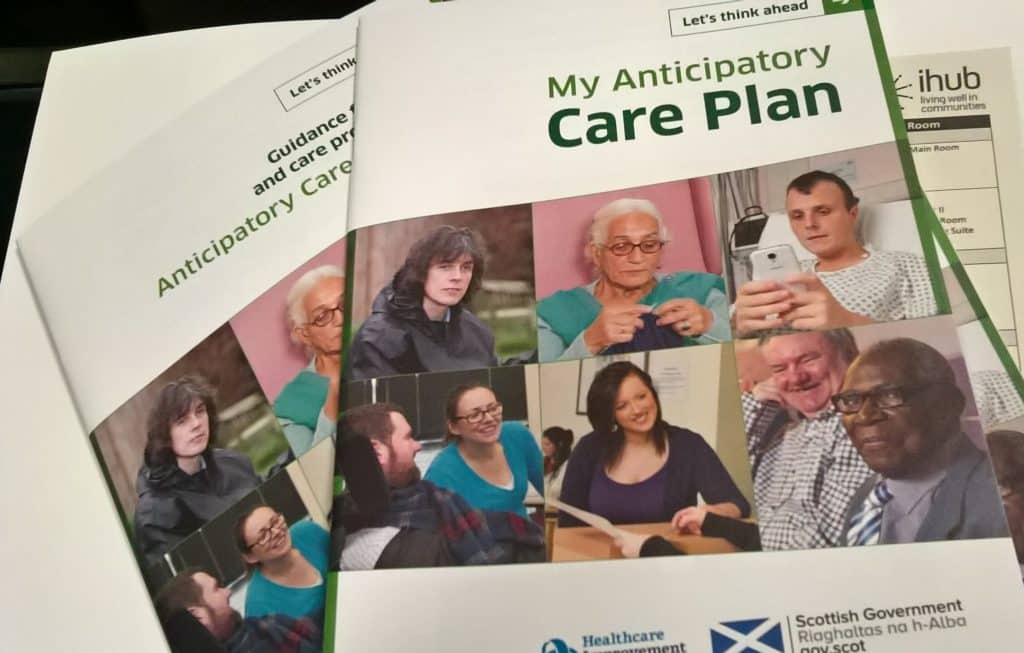A workshop in Edinburgh has marked a milestone in moving forward with anticipatory care planning (ACP) with the launch of an app and the unveiling of the national documents.
The event, Anticipatory Care Planning – Everyone’s Business, heard from those at the centre of delivering the national ACP action plan.

Those attending heard how ACP is a person-centred, proactive “thinking ahead” approach which requires services and health and care professionals to work with individuals, families and carers to have the right conversations to set personal goals for the right outcome.
The documents include the care plan, guidance for health and care professionals, a booklet with details on things to think about such as power of attorney as well as a leaflet explaining ACP. They can all be downloaded at the dedicated website myacp.scot
The conference, organised by Healthcare Improvement Scotland’s iHub Living Well in Communities Team, gave audience members the opportunity to find out more about the journey behind the launch and the way forward.
Speaking during the panel were the parents of Jack, a young boy with a life-limiting condition. Jack’s dad spoke of how ACP has helped them achieve their preferred goals and outcomes for his life.
“It’s not a plan, it’s a conversation,” he said.
You can watch a video showing the story of Jack and others here
What is anticipatory care planning?
- It is about thinking ahead and understanding your health better.
- It is about knowing how to use services better and make choices about future care.
- It is not legally binding, it is voluntary and it can be updated at any time.
- It should be reviewed and updated as the individual’s condition or personal circumstances chance and different things take priority.
In the guidance for health and care professionals, it says for ACP to work “we need to build on existing good practice”.
According to the document: “This requires a cultural shift and change in the way we work to develop a robust community infrastructure that has the capacity and capability to provide 24/7 care, improve quality of life and manage more people more independently out of hospital.
“Optimal outcomes and improving quality of life through ACP are helped by early intervention when people have complex needs or changing circumstances.
While the work responds to the challenge of providing care for an ageing population with increasing prevalence of long term conditions and multiple morbidities, ACP is relevant for all ages.”
It also points out that there is increasing evidence that appropriate access to community services and good anticipatory care, supported by the development of a Key Information Summar (KIS) containing the right information, can reduce the risk of hospital admission by 30–50%
This is great first step and it should go much further, for example people with Diabetes or other long term conditions should be able to use something like this to monitor their condition on a daily basis and be alerted when they need to take actions to avoid crisis or unplanned admissions. It should feed back to their GP or nursing team and be available to ambulance and hospitals. The patient needs to lead this — professionals need to inform and empower patients – we need to get to patient led not patient centred